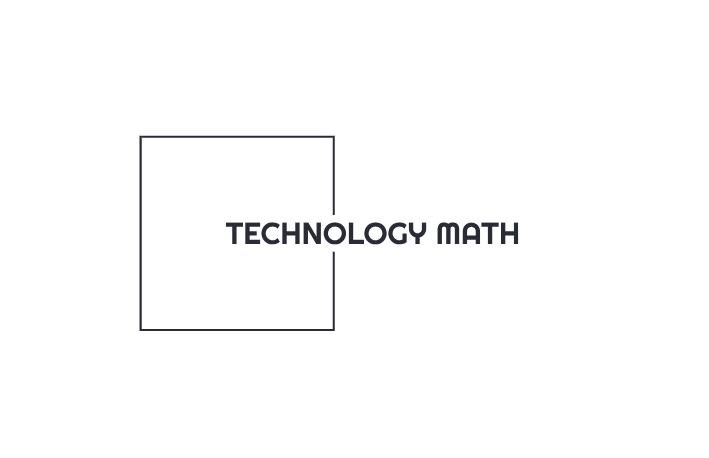
The global gaming industry continues to thrive, reaching audiences across the world and evolving in scope year after year. The industry generated an estimated $184.4 billion in revenue—a figure that highlights its massive cultural and economic influence. However, this incredible growth has also made gaming platforms a prime target for cybercriminals. With millions of players engaging daily through consoles, desktops, and especially mobile devices, the industry’s vulnerabilities are growing just as quickly as its popularity.
Forbes reports that mobile gaming apps, in particular, present unique challenges. They are easier and cheaper to develop than desktop or console games, which explains their abundance in app stores. Unfortunately, this accessibility also makes them a more frequent target for hackers and malicious actors. As the number of gamers climbs, so does the motivation for cyberattacks, forcing platforms to invest heavily in cybersecurity to protect users’ personal and financial data.
Types of Gaming Platforms
To understand how cybersecurity measures are applied, it’s useful to look at the different categories of gaming platforms:
- Console Gaming Platforms – Systems like PlayStation and Xbox prioritize strong authentication systems and regular firmware updates. Since consoles are tied to large ecosystems, companies enforce stringent monitoring to detect account abuse or fraudulent activity.
- PC and Desktop Gaming Platforms – Services like Steam, Epic Games Store, and Blizzard’s Battle.net are heavily targeted because of their massive player bases and integrated payment systems. These platforms focus on account protection features such as two-factor authentication and suspicious activity monitoring.
- Mobile Gaming Apps – Mobile platforms are the most abundant, and consequently, the most at risk. Developers and publishers must ensure app store security compliance and update patches regularly to minimize vulnerabilities.
- Online Casino Platforms – Digital casinos face a unique combination of risks since players are not only engaging in games but also conducting real-money transactions. Internationally recognized names like Solaire Online have invested in advanced security frameworks to protect their customers from potential breaches.
Cyber Threats Facing Gaming Platforms
The gaming sector faces a variety of cyber threats, ranging from simple scams to highly sophisticated attacks. Among the most pressing are:
- Account Takeovers: Cybercriminals steal login credentials, often through phishing schemes or leaked databases, to access player accounts. These accounts are valuable not only for in-game assets but also for linked payment methods.
- Phishing Scams: Hackers send fake messages or in-game notifications that trick players into revealing personal data or downloading malicious software.
- Distributed Denial-of-Service (DDoS) Attacks: Popular platforms can be overwhelmed by traffic floods, causing downtime during major events or launches, which disrupts player experience and damages a brand’s reputation.
- Malware and Ransomware: Malicious software can be embedded in fake gaming apps or add-ons, leading to compromised devices or encrypted files held for ransom.
- Cheat Tools and Exploits: While these might seem harmless to casual players, many cheat programs are actually vehicles for malware that steal sensitive data.
The combination of financial incentives, vast user bases, and the increasing prevalence of virtual goods has made gaming platforms irresistible targets for cybercriminals.
The Growing Cyber Threats Facing Online Casinos
Like any digital platform that handles personal and financial information, online casinos face a wide array of cyber threats. Among the most common are:
- Account Takeovers: Hackers use stolen credentials or phishing attempts to access player accounts, often exploiting them for in-game assets or linked payment methods.
- Phishing Attacks: Fake emails, messages, or pop-ups trick users into revealing passwords or downloading malicious software.
- DDoS Attacks: Cybercriminals overwhelm servers with fake traffic, forcing downtime during peak hours or special promotions, damaging both player trust and platform reputation.
- Ransomware and Malware: Malicious software embedded in fake apps or add-ons can lock down devices or siphon user data.
- Cheat Tools and Exploits: Beyond unfair play, many downloadable cheats are Trojan horses for malware designed to compromise sensitive information.
As online casino gaming continues to grow, so too does its appeal to hackers seeking financial gain, making cybersecurity a vital investment.
Solaire Online, an extension of the globally renowned Solaire brand, is a good example of how online casinos prioritize safety as much as entertainment. Online casinos are frequent targets of cybercriminals due to the high volume of sensitive personal and financial data they process daily. To address these risks, Solaire Online has implemented several key measures:
- Encryption Protocols: All player data is encrypted, ensuring that personal details and financial transactions remain unreadable even if intercepted.
- Secure Socket Layer (SSL) Technology: SSL certificates establish a secure connection between the user and the platform, protecting data transmissions from third-party interception.
- Firewalls: Robust firewalls serve as a first line of defense, monitoring and filtering traffic to block unauthorized access.
- Regular Security Assessments: Solaire conducts frequent security audits and vulnerability assessments to stay ahead of emerging threats.
These measures allow Solaire to deliver not only world-class gaming but also peace of mind, making it a trusted platform in an industry where reputation and reliability are critical.
What More Can Gaming Platforms Do?
While existing protections such as encryption and SSL technology are fundamental, the cybersecurity landscape is constantly evolving. Gaming can take additional measures to enhance security and reinforce trust among players:
- Multi-Factor Authentication (MFA): Implementing MFA ensures that accounts cannot be accessed with just a stolen password, adding an extra layer of protection.
- Behavioral Analytics: AI-powered monitoring systems can detect unusual login activity, erratic betting behavior, or fraudulent transactions in real time.
- Player Education: Many cyberattacks succeed because of user error. Platforms that offer players clear guidance on avoiding scams, phishing, and unsafe downloads help minimize risk.
- Secure Payment Integrations: Working with trusted payment providers and adopting tokenization ensures that sensitive financial details are never exposed.
- 24/7 Monitoring: Around-the-clock security teams can respond instantly to attempted breaches, reducing downtime and financial loss.
By staying proactive and combining cutting-edge technology with continuous user education, gaming platforms can stay one step ahead of cybercriminals.
The Future of Cybersecurity in Gaming
The gaming industry will continue to be a top target for cybercrime due to its size, rapid growth, and integration of financial transactions with entertainment. Platforms that fail to keep up with evolving threats risk losing both data and player trust. However, those that invest in strong security infrastructures not only protect themselves but also create safer, more engaging environments for players.
The future will likely see even greater reliance on artificial intelligence, machine learning, and blockchain technology to secure transactions, detect anomalies, and eliminate vulnerabilities. From console gaming giants to niche online casinos, the commitment to cybersecurity will remain essential to the industry’s long-term success.
In an era where the gaming world is bigger and more connected than ever before, cybersecurity isn’t optional—it’s a necessity. Platforms like Solaire Online demonstrate how investment in data protection technologies and security protocols can deliver both thrilling gameplay and unwavering trust.
For more cybersecurity news, do read our other Technology Math articles.






